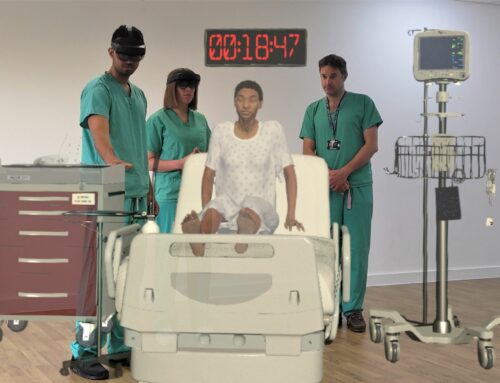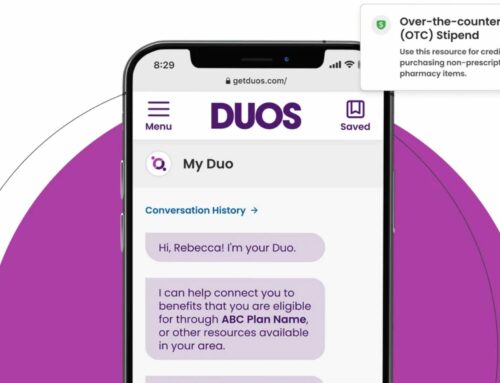There are approximately 74 million Baby Boomers (born between 1946 and 1964) in the US today, representing 22% of the overall population[1]. Every day 10,000 Boomers turn 65, aging into Medicare, and by 2030 it is projected that almost 1 in 5 US residents will be retirement aged[2]. With growing care needs associated with aging, they are among the most important demographics for healthcare service and capacity planning and are driving the largest portion of overall healthcare consumption and cost.
Facing increasing mobility challenges and living with fixed income, this older generation is looking for healthcare options based not only on their particular care needs but also on cost, accessibility, and adaptability. The vast majority of seniors rate the current healthcare system as horrible. In their experience, it is too expensive, too difficult to access, and continues to come up short for providing consistent, quality care. Roughly 46% of seniors do not consider health insurance beyond Medicare a viable option[3]. Even with Medicare’s assistance, they view the cost of prescribed medications as inhibitive and often self-diagnose and treat with cheaper (often ineffective) over-the-counter alternatives or try to ignore and ride out health issues until they’re impossible to ignore, and sometimes until it is too late.
Today’s Boomers are more active and self-reliant than previous older generations. Moreover, as they were pulled (sometimes reluctantly) into the digital age by evolving job requirements or their Gen X and Millennial children and grandchildren, the majority of Boomers are no longer becoming tech-savvy – they’re already there having integrated the Internet and smartphones into their daily lives. Reaching this demographic has never been easier – and being able to provide high-quality, accessible care on their terms should be a high priority for many physicians and provider organizations. As the population of Baby Boomers continues to expand, so too does the need to explore creative care solutions that address the unique and evolving care and lifestyle needs of these seniors.
Why Telemedicine Makes Sense
The ease and convenience of telemedicine’s flexible delivery model, which enables care consultations to occur between patients and their care providers wherever and whenever they’re needed (often without the need for the patient to leave the comfort of their own home) is an attractive option for addressing the unique care preferences and challenges of the Boomer population. Add to that the fact that approximately 85% of the new senior majority have integrated the use of smartphones and tablets into their daily routines.
Furthermore, today’s seniors have taken a keen interest in their own healthcare management, embracing the introduction of wearable technologies for monitoring and managing their overall wellness, are more likely to look up health-related symptoms and topics online to avoid a trip to the doctor’s office, and are demanding a more active role in planning their care pathways when an appointment does occur.
As health insurance is not required for the use of telemedicine, and per-visit costs are significantly lower than traditional care, averaging from $8 to $75 a month for service, today’s seniors are finding telemedicine to be the best and most economical choice to fit their lifestyle needs. For them, being able to contact a physician and rapidly get a diagnosis and prescription medication (non-narcotic/non-emergency) 24×7 over their mobile device or laptop is no longer considered a luxury, rather it has become a requirement within the scope of our healthcare system.
Mobile Ready
The great thing about telemedicine is that it’s already tailored to fit within the current lifestyle trends of the Baby Boomer generation. Most seniors have embraced digital banking, scheduling, socializing, shopping, and health apps from their mobile devices. Telemedicine is simply one more way to integrate healthcare management into the palm of their hands.
According to a 2017 Salesforce survey 38% of seniors were interested in being able to schedule an appointment through a mobile app and manage their personal medical records online, and this number continues to grow. Organizations that make telemedicine easy for seniors – allowing them to easily download an app, dial a toll-free number, or click on a link on their smart TV to get a quick consultation, diagnosis, and prescription (sent to a pharmacy of their choice) will most certainly have an advantage over traditional care providers as Boomers will be quick to adopt and integrate these convenient and economical services into their daily lives.
Breaking with Tradition
While making an appointment and meeting with a physician in their office is still the norm, having access to the same quality of care at a fraction of the cost and according to your schedule, 24×7 makes telemedicine a top contender to disrupt the world of modern healthcare. With an eVisit program you can access a physician within minutes, 24×7, and subsequently needed prescriptions can be sent directly to your preferred local pharmacy for pick up or delivery. Moreover, online tools, mobile apps, and wearable IoT devices are starting to make their way into mainstream healthcare settings and are already proving their value for improving the quality, convenience, and scalability of our healthcare system. Are you ready?
About the Authors:
Dr. David Wanner, EdD, Chief Administrative Officer & Executive Vice President at I360 Healthcare
Dr. Wanner is the Chief Administrative Officer & Executive Vice President at I360 Healthcare. He is an accomplished executive with decades of experience in healthcare service delivery. He uses his unique blend of leadership experience in enterprise information infrastructure, project management, vendor relationship management, software and hardware design/development, networking, and systems security to operationalize strategic visions and shape IT performance and responsiveness to support key business initiatives within the healthcare information technology field. A skilled change agent with a track record of transforming digital health environments, David is a pragmatic problem-solver who finds innovative solutions to streamline care delivery processes. His strong IT background and experience with Epic, Allscripts, McKesson, and Cerner electronic health records allow him to implement a number of transformational clinical programs.
Laurie Lafleur MBA, CIIP, Senior Health IT Consultant at Paragon Consulting Partners, LLC
Laurie Lafleur is a senior healthcare IT consultant at Paragon Consulting Partners, LLC. With nearly 20 years of relevant experience in software engineering, product marketing, and business strategy in the Healthcare IT and imaging informatics industries, her passion and focus are on improving the quality, accessibility, and efficiency of healthcare through technology innovation and adoption. To this end, Laurie actively helps provider organizations of varying sizes and profiles to define forward-thinking IT strategies and stewards them through the technology selection, deployment, and adoption processes. As well, she works with vendor organizations to help them navigate market opportunities and challenges, refine their roadmaps, and launch beneficial and commercially viable new products to the industry.
[1] https://www.cleveland.com/datacentral/2017/04/baby_boomers_slip_to_741_milli.html
[2] https://www.forbes.com/sites/forbestechcouncil/2019/06/28/healthcare-and-baby-boomers-tech-adoption-is-the-key-to-better-outcomes/#361d94c97ad4
[3] https://www.ncbi.nlm.nih.gov/pmc/articles/PMC4193634/












